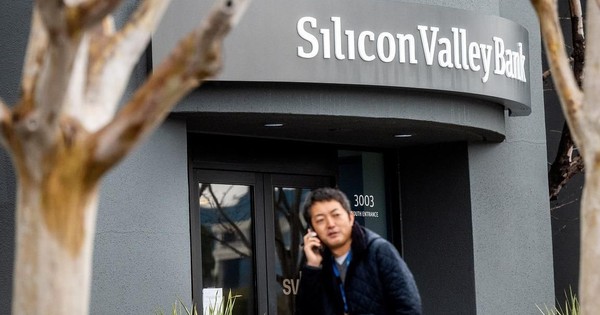SVB Signals Its Comeback a Year After the Third Largest Bankruptcy in US History

After the collapse of Silicon Valley Bank (SVB) in March 2023, the bank specialized in serving technology companies and startups is now making efforts to signal its comeback.
SVB is currently managed and owned by First Citizens Bank, based in North Carolina. First Citizens Bank acquired all the deposits and branches of SVB after the third-largest bankruptcy in the history of the US banking industry.
The collapse of SVB resulted in the loss of many customers. People rushed to withdraw their funds, causing a disruptive bank run that shook the technology industry and required government intervention. Hundreds of employees were laid off, and some customers voluntarily left, taking their business to other banks. Since then, the remaining SVB employees have been working hard to rebuild trust and convey the message that they are still here.
Speaking at a recent banking summit in San Francisco, Marc Cadieux, the Chairman of SVB, stated, “Over the past year, SVB has made significant efforts to correct what I believe was a misconception that the bank had gone away and left a void. The truth is, we never left.”
Cadieux revealed that about 81% of the pre-bankruptcy customers still have accounts with SVB, and thousands of customers who had left have returned. He further emphasized that relationships remain at the core of the bank’s operations and that SVB intends to continue focusing on serving startups.
“We are still doing all the things that have made us successful in the past,” said the Chairman of SVB.
However, not everyone is convinced by the words of the SVB leadership.
Antoine Nivard, Co-Founder and General Partner of the venture capital fund Blank Ventures, stated, “I don’t know anyone who sent their entire fortune there. Whether it’s a startup or a venture capital fund, everyone has suffered from SVB at some point. No one wants to go through that again.”
According to the Federal Deposit Insurance Corporation (FDIC), before its collapse, SVB had around $119 billion in customer deposits. By the end of 2023, that number had dropped to $38.5 billion, according to the Q4 income report from First Citizens Bank. One reason for the decrease is the overall recession in Silicon Valley, as startups faced difficulties in raising capital due to higher interest rates, and major tech companies reduced software spending. However, after the SVB incident, other banks jumped in to attract SVB’s former customers.
Prior to the collapse, SVB had dominated the technology industry and had been doing business in Silicon Valley for 40 years. In 2020-2021, low interest rates and the consumer demand for internet entertainment, remote work tools, and new laptops led to a technology boom. Investors poured money into startups, and those startups subsequently deposited funds into SVB. The bank took those deposits and invested in long-term assets that offered higher returns.
But as the world emerges from the pandemic and interest rates rise, the technology industry enters a period of downturn, laying off tens of thousands of workers and pulling back on new investments. Loss-making startups withdrew their deposits from the bank, and the higher interest rates affected SVB’s investment operations.
On March 8, 2023, SVB reported a $1.8 billion loss after selling securities investments valued at $21 billion, and the bank planned to issue an additional $2.25 billion of shares to offset the loss. The situation worsened when Moody’s downgraded SVB’s rating, and some major venture capital funds, such as the Founders Fund, advised companies in their investment portfolio to withdraw funds from SVB. On March 9, 2023, SVB customers rushed to withdraw funds, estimated to be around $42 billion in a single day, and SVB’s stock plummeted by 60%. SVB collapsed the following morning and was taken over by the FDIC.
Source: Business Today

